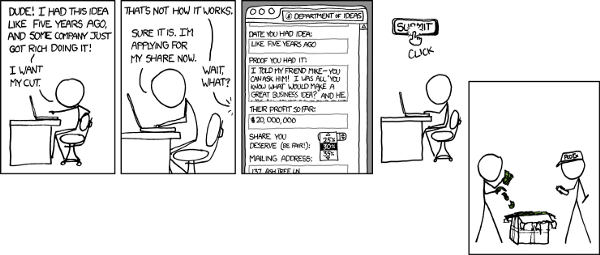
By Ahmed Saoudi
How much does a shape cost? Most of the time, squares, circles and triangles are worthless for their own sake. Sometimes, however, they can get expensive. Very expensive. That’s a lesson Samsung had to learn the hard way. Back in 2012, the Korean phone maker was ordered by an American court to pay a whopping 400 million dollars in damages to Apple for copying the famous “rectangular with rounded edges” shape of the iPhone.
This case, and many like it, shows how intellectual property, and protection thereof, is ever more crucial in an increasingly knowledge-based economy. As companies innovate and try to come up with new products, services and processes, they need to protect their valuable creative work and intangible assets.
According to Alfred Zaher, an intellectual property lawyer from Philadelphia, USA, the status of the intellectual property in Tunisia is complicated. “The Tunisian law, which is based on a combination of French and American concepts, is actually good and in line with international laws,” he said during a presentation at the Cogite coworking space in Tunis about intellectual property protection for startups. “The application of the law in courts is where the problem lies,” he argued.

Intellectual property, as defined by the World Intellectual Property Organisation, refers to “creations of the mind, such as inventions; literary and artistic works; designs; and symbols, names and images used in commerce”. Mr Zaher explained that IP can be divided into several categories. A trademark, for example, is useful for distinguishing a firm’s products from others’. Copyright is another form of intellectual property that’s used to describe the rights that creators have over their literary and artistic works such as articles, music or even databases. A patent, on the other hand, is a set of exclusive rights granted to its owner for a limited period of time in exchange for detailed public disclosure of an invention.
Unlike the above-mentioned forms of intellectual property, trade secrets are not known to the public. For an information to be considered a trade secret, it must be an undisclosed piece of knowledge providing some business value. The owner of the information must also ensure that sufficient measures have been taken to protect its secrecy. One of the most attractive aspects of trade secrets is that, contrary to patents, they do not have an expiry date. As such, many companies, big and small, prefer not to patent their inventions and rely on secrecy to keep them safe. Coca-cola is one famous example.
Trade secrets are particularly important for startups who use them to protect their most important assets. “Startups must put in place policies that provide non-disclosure and non-competing agreements prohibiting the release of the information outside of the company,” asserted the speaker.
Startuppers were quick to point out that they’re often required to give access to details about their products while seeking funding and other partnerships, and that failing to do so may jeopardize any potential deal. “How can we protect ourselves?”, asked a young attendee.
“You must document and keep track of all public disclosures and log access to sensitive information,” recommended Alfred Zaher. “If you are meeting a potential investor or partner to discuss your product, you can send them an email stating that the information that will be discussed is confidential and is solely disclosed for the purpose of the meeting.”
Such a document may hold up in an American court, but would be hard to enforce before a Tunisian judge, warned the lawyer.












